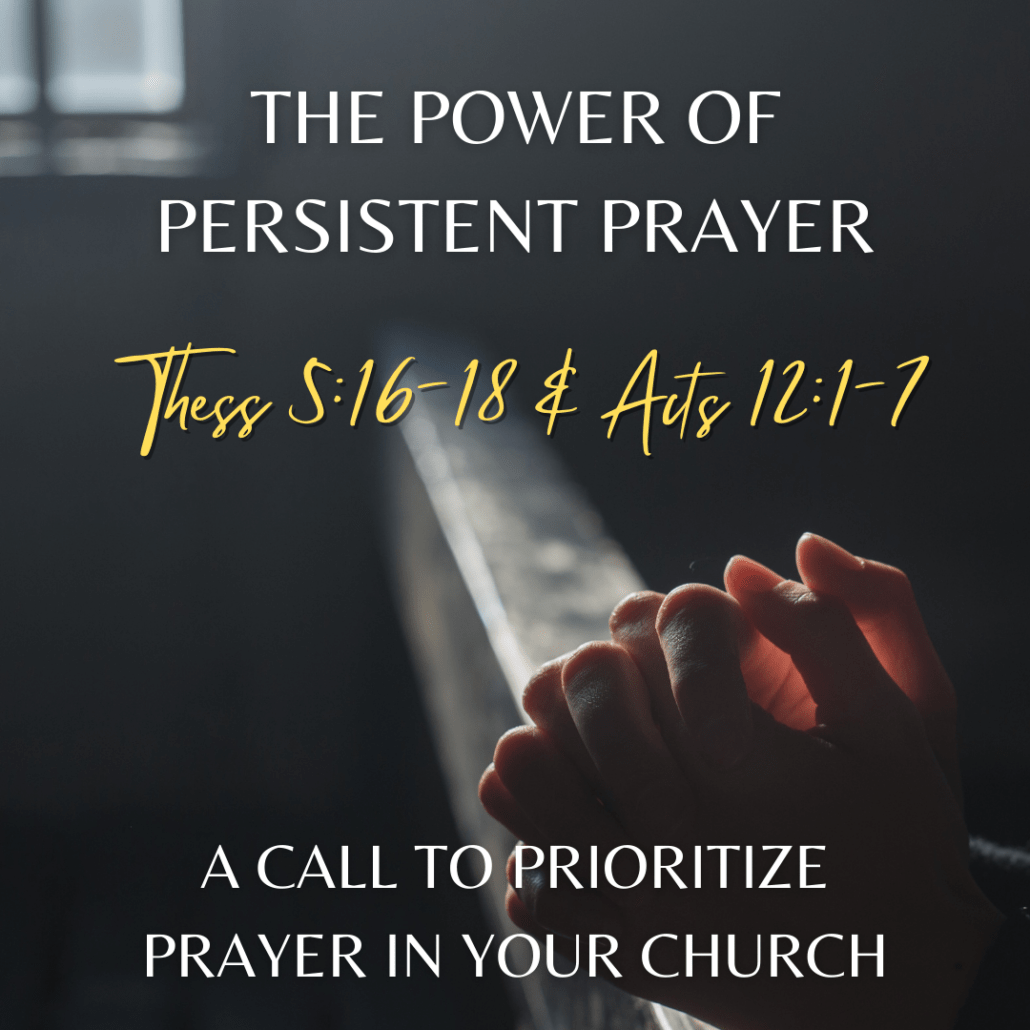Reflecting on the recent National Week of Prayer and Fasting, it was very heartening to witness the commitment of so many individuals and the enduring impact of the Prayer for Revival at Noon Eastern initiated last year during this same week. I extend my gratitude to the National Prayer team for their dedicated efforts in fostering a culture of prayer within our movement. As we transition further from this focused week of prayer into the months ahead, we need to consider how we will continue prioritizing prayer in our lives and churches, recognizing its profound significance.
The Biblical Mandate:
Scripture explicitly commands us to “pray without ceasing” (1 Thessalonians 5:16-18). While our expressions of faith and devotion may vary, this command serves as a foundational principle. Corporate prayer, again, despite differing perspectives on its practice, holds undeniable importance. It beckons us to prioritize God’s preference over our own, acknowledging that the health and vitality of our Church hinge on our dependence on God through prayer.
The Role of Prayer in Church Dynamics:
As we assess the past year and plan for 2024, we must consider the role of prayer in our churches. Do you want to see more people saved, baptized, or even young families coming to encounter Jesus at your Church this year? Or do you desire greater unity in your Church? While various factors contribute to the outcomes we desire, committing to an ongoing culture of prayer reminds us that all our efforts are contingent on God. Our strategies, plans, Church Health tools, and resources are only potent through God’s empowerment, emphasizing the pivotal role of prayer in achieving spiritual progress.
Spiritual Warfare and the Power of Prayer:
The weapons of our spiritual warfare are not crafted by human hands; they are divinely powerful (2 Corinthians 10:4). Prayer stands out as a crucial avenue in the battle against the enemy’s schemes for our churches. In fighting spiritual strongholds through prayer, we recognize the limitations of human-crafted strategies and affirm the necessity of engaging God to see lasting transformation.

Unleashing Divine Power through Persistent Prayer:
Praying without ceasing may seem daunting, but it is simply a commitment to a continuous flow of communication with the divine. It involves having Jesus at the forefront of our minds daily, emphasizing relationship over ritual. The call to pray without ceasing is a call to unleash a potent force into the spiritual realm, affecting positive change in our lives, churches, and the world around us.
Biblical Examples of the Power of Prayer:
The narrative of Peter’s miraculous release from prison in Acts 12 exemplifies the transformative power of prayer. The early Church, facing imminent threats, gathered in prayer, resulting in an unexpected intervention. While not every situation may witness such dramatic outcomes, prayer remains a powerful force that God can use to surprise us with solutions we may not have anticipated.
A Call to Obedience and Communion:
In our current world, marked by serious challenges in our Christian mission and evangelism, our call to prayer remains constant. Whether facing persecution or celebrating miracles, our obedience and communion with God are paramount for success as Christians and leaders. The call to pray without ceasing is a call to remain steadfast in our relationship with God, irrespective of external circumstances.
“One who always prays is ever giving praise, whether in ease or pain, both for prosperity and for the greatest adversity. He blesses God for all things, looks on them as coming from Him, and receives them for His sake- not choosing nor refusing, liking or disliking, anything, but only as it is agreeable or disagreeable to His perfect will.”
John Wesley, How to Pray: The Best of John Wesley on Prayer
As we contemplate the next steps for our churches in 2024, let us reflect on six crucial questions: Is prayer important to your congregation? If not, how could you begin strides toward building an intentional culture of prayer? Does your church have a designated prayer point person? Are there special moments of corporate prayer during and outside the Sunday services? Do leaders incorporate prayer in decision-making processes? And do pastors have moments of rest, retreat, and spiritual renewal built into their responsibilities and Job descriptions?
Prioritizing these aspects ensures that prayer remains at the core of our churches, guiding us toward spiritual vitality and success in our collective mission as a movement.
– Jervis




